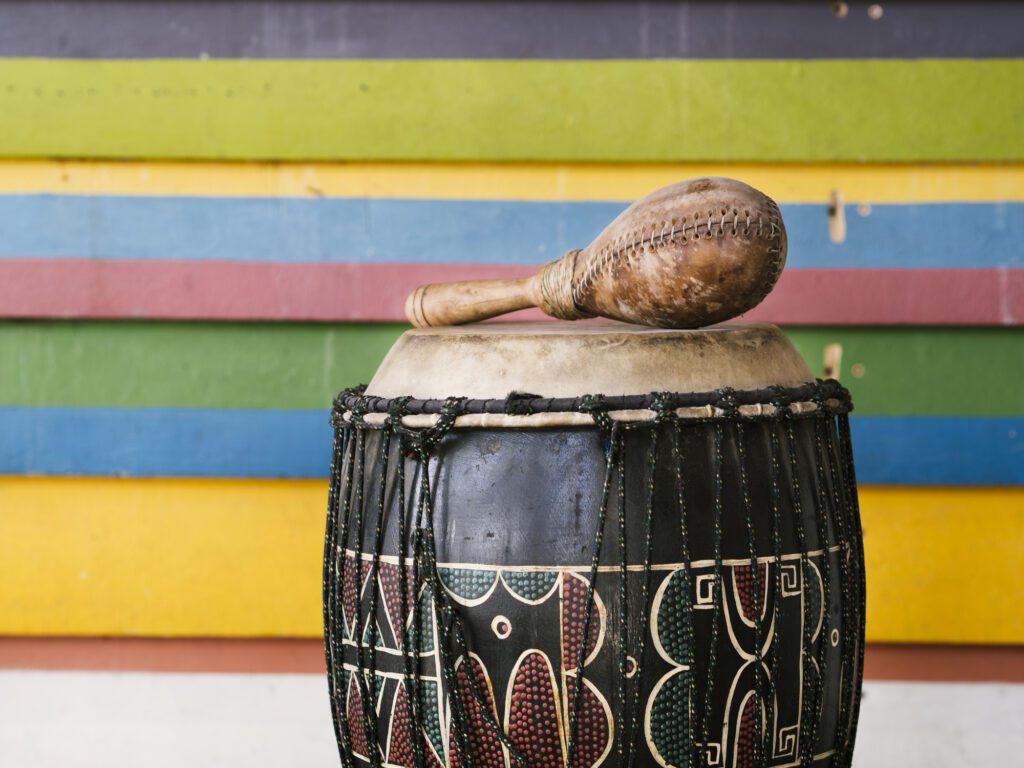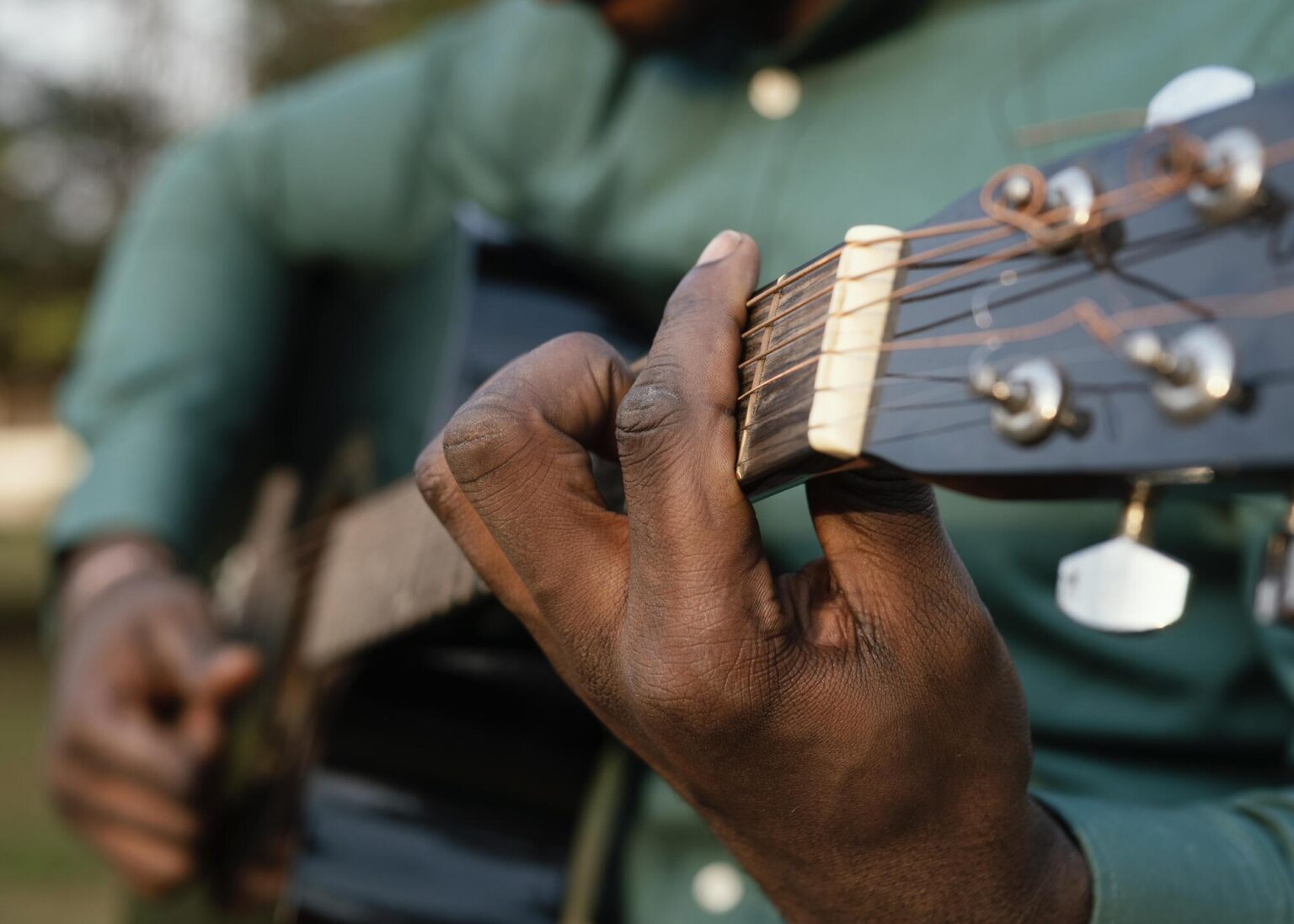Music has always united us as humans. Legends like Mahmoud Ahmed of Ethiopia and Helen Meles from Eritrea have taken indigenous music to the prestigious BBC World Music Award as far back as 2007 and have proven how music can be accepted beyond the country of origin.
Remember when Davido joined Trinidad and Tobago’s Cardona along with Qatari singer Aisha to perform the official World Cup anthem “Hayya Hayya” to a crowd of about 88,000 fans at Lusail Stadium. It was a night to remember, people from different nationalities all under one roof listening to one song. Music holds that much power.
Did you ever listen to a song that wasn’t in your language, but for some reason, you felt every beat and emotion? That’s the magical effect of music. Whether you like Afrobeats, jazz, reggae, soukous, taarab, gnawa, pop, or classical, music is the universal language we all share.
No matter where you’re from or which language you speak, music expresses feeling, tells stories, and brings people together in a way that nothing else can. It’s woven as part of our history, in our recovery, in our joy, in our pain, and in our celebrations. Music doesn’t require subtitles or interpreters; the rhythm speaks for itself.
Why is Music Our Universal Language?
The phrase “music is the universal language” isn’t just some poetic statement; it has been supported by multiple neuroscience and sociology studies. It has been demonstrated that music accesses regions of the brain linked to emotion, memory, and movement. These can be activated regardless of any cultural context.
For example, the classic “Pata Pata” by Miriam Makeba has an infectious afro-pop rhythm and soaring vocals that made it a global hit, even among listeners who didn’t understand a single word. Music relies on rhythm, pitch, harmony, message, and sometimes storytelling that speaks to our shared human experience.
How Music Connects Us Across Borders
1. Shared Emotions: Music communicates human feelings; love, brokenness, excitement, nostalgia, sadness, name it. These are all human sensations, and music communicates them so beautifully, regardless of the language with which it was sung. You don’t need to know Zulu to feel the passion in a South African love song, try listening to Sidiki Diabaté “Fais Moi Confiance” (Mali). Waving Flag was an uplifting song by Somali-Canadian rapper K’naan. It became a global anthem of hope and resilience. The whole world indeed waved its flag.
2. Global Genres, Local Sounds: Styles like hip-hop, reggae, R&B, and gospel emerged in some parts of the world, but today they’ve reached far and wide. Artists from different countries are incorporating instruments indigenous to Africa and languages into these styles and creating beautiful global music.
3. Festivals and Events: From AfroNation to Coachella, people of all types unite at music festivals. Music provides the shared platform for an unwritten togetherness, even among strangers who share no common language. African musicians like South African Tyla, Nigerian Seun Kuti & Egypt 80, Nigerian singer Rema, and Ghanaian Amaarae were headliners at Coachella 2025.

4. The Rise of Streaming and Social Media:
Platforms like Spotify, YouTube, and TikTok bring global music to your fingertips more than ever. A song recorded in Harar can be viral in Berlin. A DIY band in Seoul can get popular in Johannesburg. Music knows no boundaries.
The Power of Music
1. Music as Therapy
Music is now used more and more in therapeutic settings, known as music therapy. This therapy helps people cope with mental illness, trauma, and stress. Even patients with Alzheimer’s or autism are responsive to melody and rhythm.
2. Music During Conflict and Crisis
In times of crisis (war, natural disaster, or political unrest), music becomes a tool for unity and resistance. Protest songs, national anthems, and hymns have given people strength when they needed it most. You can think back to how Bob Marley’s “One Love”, Michael Jackson’s “What About Us” and “Heal The World”, or Fela Kuti’s songs, and how they inspired political consciousness far beyond their own countries.
3. Music and Diaspora
For the person away from home, music becomes a door they can walk through back home. An Ethiopian in Canada can listen to Wenani to get the soulful feel of Ethiopian music. A Jamaican in London will take solace in a riddim that transports their mind back to Kingston streets.
Music bridges the emotional gap of migration. It makes you remember where you belong and connects you to others who feel the same.
When the world seems far apart by politics, borders, race, religion, and opinion, we’ve got music to softly remind us that we’re more alike than different. You can enjoy local African radio stations on our calling app.


